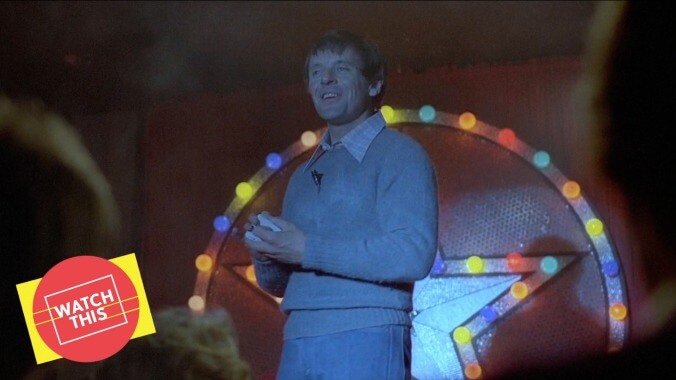With help from a dummy, Anthony Hopkins created a character almost as unsettling as Hannibal
Film Features Watch This
Watch This offers movie recommendations inspired by new releases, premieres, current events, or occasionally just our own inscrutable whims. This week: David Fincher’s Mank, about Herman J. Mankiewicz’s work on Citizen Kane, is coming soon to Netflix. Before it drops, check out these earlier films penned by some of Hollywood’s most famous screenwriters.
Magic (1978)
For all the nightmares he’s generated over the years, Anthony Hopkins’ Hannibal Lecter isn’t instantly repellent. He’s too charismatic to send you running for the hills; his whole power lies in drawing people closer. That’s part of what’s so unsettling about him: Lecter would appear reassuringly normal, maybe even charming, were it not for a glint in his eye or the curl of a lip, warning that there’s something wrong, something a little… off about the guy. It’s the human equivalent of the door you could swear you just closed a minute ago, only to turn around and see it ever so slightly ajar.
Charles “Corky” Withers, as played by Hopkins in the 1978 horror film Magic, is similar. A magician who finds success by incorporating a foul-mouthed ventriloquist’s dummy named Fats into his act, Corky is almost unfailingly polite, seemingly easygoing, and reserved in his mannerisms. Even when armed with his fast-talking alter ego, Corky manages to charm strangers and old friends alike. But it’s in the little moments between words, when he cocks his head or stares just a little too long at someone, that the viewer gets the impression of a person who’s not all there. Just as another Anthony gave a lonely man named Norman Bates enough understated shyness for him to plausibly come across as an everyman to Marion Crane, Hopkins lends Corky a sweet, smiling demeanor. When the faintest undercurrent of mania appears, it’s that much more disconcerting.
After a brief opening demonstrating his failure as a solo magic act, Magic jumps ahead to Corky’s nightclub success following the addition of Fats. This being a horror movie prominently featuring a dummy, it’s no spoiler to reveal the magician’s dark secret: that he’s begun to treat Fats as a separate living entity, essentially an embodiment of his own id. William Goldman adapted Magic from his novel of the same name (producer Joseph Levine paid him $1 million for the rights—a princely sum at the time, even for a multi-Oscar winner), and whereas the book was a first-person account, here the screenwriter keeps us at a distance from Corky’s inner thoughts, the better to ratchet up audience uncertainty about just what he’s thinking—and what he’s capable of. The dialogue is refreshingly understated for the genre, and Goldman maintains a grounded humanism even in Corky’s wildest outbursts, to the point where it’s never even said aloud what, exactly, is the magician’s problem.
The film is unnerving even for those who aren’t automatonophobes. Director Richard Attenborough favors long, lingering shots of Corky and his wooden accomplice—so much so that viewers could be forgiven for repeatedly wondering if the film is going to lurch into supernatural territory and have the dummy come alive. The most anxiety-inducing sequence in Magic isn’t any of the explosive moments of violence but rather when Corky and his agent, Ben (a wonderful Burgess Meredith), sit quietly facing one another after the latter walks in and catches his talent screaming at Fats as though he were alive. Taking out a cigar, Ben tells Corky he’ll forget what he just saw, provided they can go five minutes without Fats talking. As the seconds tick by, Hopkins’ increasingly agitated Corky starts to drop his mask. By the end, even Hannibal Lecter might feel too uncomfortable to stick around.
Availability: Magic is currently streaming on HBO Max. It’s also available to rent or purchase digitally from Amazon, Apple, or Microsoft.